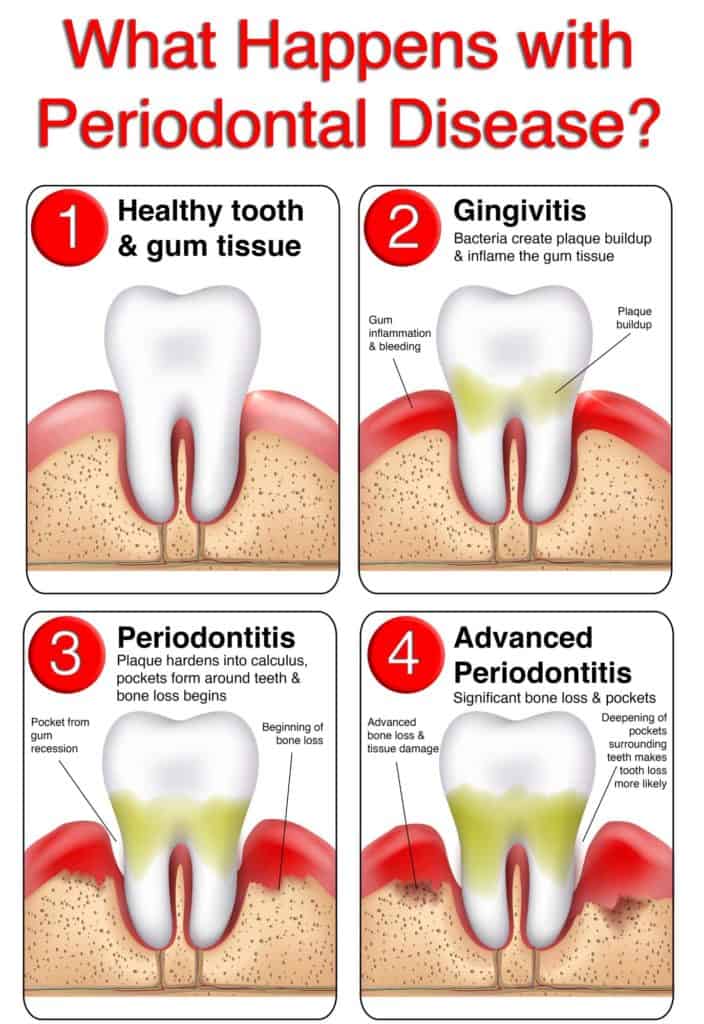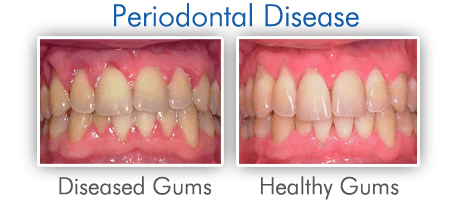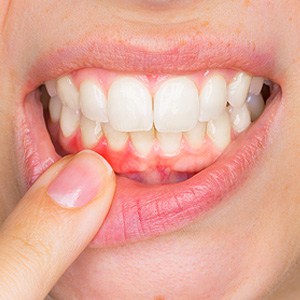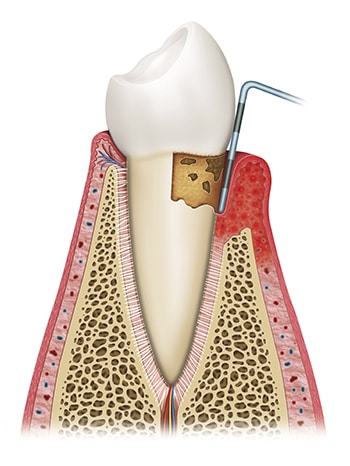The usual alert to gum disease is bleeding gums after you brush or floss your teeth and/or red or swollen gums. This is the first stage of gum disease and is called gingivitis. If gingivitis is left untreated then the disease may progress and affect the tissues within the mouth and the jaw bone.
This later stage is called periodontitis or periodontal disease. Symptoms of periodontitis can include bad breath commonly called halitosis, an unpleasant taste in your mouth and gum abscesses which are pockets of infection. Teeth may even become loose and fall out.
Regular 6 monthly check-ups with your dentist or dental hygienist can alert you to the early signs of gum disease which are treatable and reversible.



 It can cause swollen gums, ulcers and bleeding when brushing. For something that can be prevented with due care, it is shocking that so many people are unaware of the dangers of this condition. Recent evidence suggests gum disease can be linked to blood clotting, heart disease and strokes.
A healthy set of gums are pink and firm, keeping teeth anchored in place. They should not bleed when you touch them or brush your teeth. A good Oral hygiene routine will ensure that this is maintained.
It can cause swollen gums, ulcers and bleeding when brushing. For something that can be prevented with due care, it is shocking that so many people are unaware of the dangers of this condition. Recent evidence suggests gum disease can be linked to blood clotting, heart disease and strokes.
A healthy set of gums are pink and firm, keeping teeth anchored in place. They should not bleed when you touch them or brush your teeth. A good Oral hygiene routine will ensure that this is maintained.



